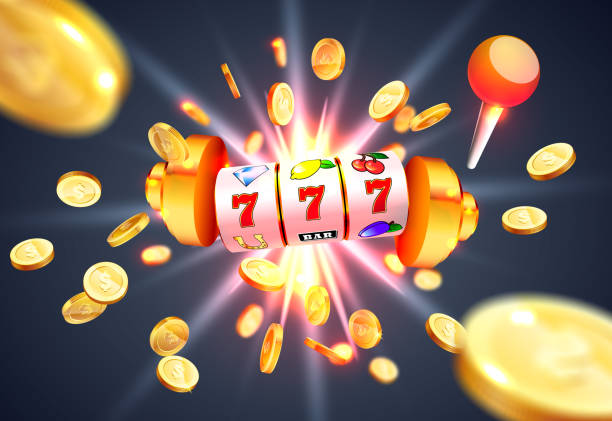
Most people don’t think about emotional balance until something feels off. Stress piles up. Sleep gets disrupted. Little annoyances start to feel overwhelming.
That’s usually the point when people start searching for ways to restore calm. For some, it’s yoga or breathing exercises. Others take weekend camping trips or commit to mindfulness meditation, and with weed delivery sacramento making access to licensed products easier, more people are adding medical cannabis to that list, not for the party, but for the peace.
Your Body’s Built-In Balancing System
Inside your body, there’s a complex network called the endocannabinoid system (ECS). This system isn’t new or rare; everyone has one, whether they use cannabis or not. Think of it as a hidden control board that helps regulate mood, stress, sleep, appetite, and even immune responses.
The ECS works by producing its compounds called endocannabinoids, which act like chemical messengers. Cannabis contains plant-based cannabinoids that can interact with the same receptors in the ECS, much like keys fitting into locks.
When the ECS is out of balance, these plant cannabinoids, including THC and CBD, may help bring things back toward equilibrium. CBD has drawn particular attention for being non-intoxicating and for its potential to ease anxiety without clouding mental clarity.
Stress: The Biggest Reason People Try Cannabis
Life today doesn’t exactly offer stress-free options. According to the American Psychological Association, nearly three in four adults experience stress every single month.
Chronic stress keeps the body in a prolonged “fight or flight” mode. Over time, this can disturb sleep, upset digestion, elevate blood pressure, and make it harder to focus.
Certain cannabis strains designed for stress relief, especially those higher in CBD or containing calming terpenes like linalool and myrcene, may help signal the body to transition into a more relaxed state. Unlike quick-fix solutions that only mask symptoms, cannabis works with the body’s existing systems, potentially supporting its natural ability to regulate stress responses.
Mood Swings and Finding an “Even Keel”
Everyone’s mood fluctuates. The concern begins when the lows hang around for too long or come too often. Some cannabinoids interact with serotonin receptors in the brain, influencing mood stability and emotional resilience.
Early research suggests CBD products may help modulate serotonin pathways, possibly reducing the intensity of mood swings for some people.
Of course, everyone’s body chemistry is unique. A strain or product that works well for one person may feel ineffective for another. That’s why experts recommend starting with low doses, observing how your body reacts, and consulting a cannabis-friendly healthcare provider for guidance.
Cannabis and Mindfulness: A Natural Match
Emotional balance isn’t just about lowering stress; it’s also about being present in the moment. Cannabis, especially in small amounts, can sometimes slow racing thoughts enough to let you engage with what’s happening right now.
Meditation sessions can feel more accessible. A short walk outside might seem more vivid. Even simple activities like cooking dinner can take on a sensory richness. This shift helps quiet the mental habit of replaying yesterday’s problems or worrying about tomorrow’s challenges.
CBD for the Clear-Headed Approach
While THC (tetrahydrocannabinol) is best known for its euphoric effects, CBD offers many potential mental health benefits without the “high.” People who want emotional support without intoxication often choose CBD tinctures, capsules, or herbal teas.
Because CBD is non-intoxicating, it is well-suited for daytime use. You can maintain focus and productivity while still potentially benefiting from its calming effects. For some, this makes CBD an ideal option for managing emotional balance throughout the day without impairing function.
Getting It Safely and Conveniently
For anyone interested in exploring cannabis for emotional wellness, access is now easier in many areas. In California, for example, weed delivery in Sacramento services allow residents to order from licensed dispensaries and receive products at home.
This convenience supports safer, more private access, especially for people with mobility challenges, busy schedules, or privacy concerns. It also ensures products are lab-tested for potency and purity, reducing the risk of contamination from unregulated sources.
Still, responsible use matters. Overconsumption or buying products without understanding cannabinoid content can lead to unwanted effects like drowsiness or heightened anxiety. That’s why starting with low doses, learning about strain profiles, and tracking your experience in a cannabis journal can help refine your routine.
Practical Tips for Responsible Use
While cannabis can be a valuable part of your emotional wellness plan, it works best when combined with other healthy habits.
Best practices include:
Begin with a small CBD or balanced THC-CBD product to test your tolerance
Use cannabis as a complement to other stress management tools, not a replacement
Track how different strains affect your mood and mental clarity
Choose products from licensed dispensaries or trusted delivery services
Avoid daily high-dose THC use if your goal is emotional stability
Making Cannabis Part of the Bigger Picture
Cannabis can play a role in your emotional balance strategy, but it’s most effective when paired with a holistic approach. Consider integrating it alongside:
Physical activity, such as yoga, walking, or swimming
Nutrient-dense meals that help stabilize blood sugar
A consistent sleep schedule
Mind-body practices like breathwork or journaling
When used in this context, cannabis may help smooth emotional edges, while your broader wellness habits provide the structure for lasting balance.
Conclusion
Emotional balance is not a one-time achievement. It’s an ongoing process that requires attention and adaptation. For some people, cannabis, particularly CBD-rich products, has become a reliable ally in this journey.
As awareness grows and research expands, conversations about cannabis are shifting from stigma toward science. With responsible use, a willingness to experiment thoughtfully, and guidance from health professionals, cannabis can be more than just a relaxation tool; it can become an intentional part of your mental wellness plan.










